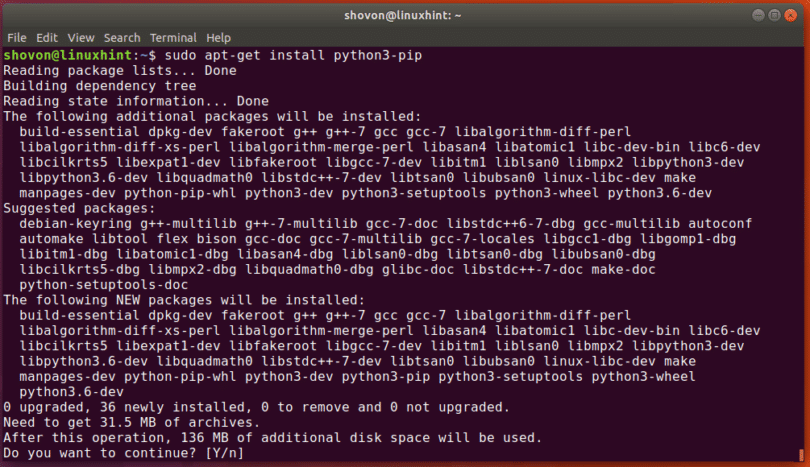
You will also learn how to install and manage packages, as well as listing packages and their version available by Pip repository. We hope this article was helpful and you were able to successfully install Pip on your system.In this tutorial, you will learn how to install Python Pip onto Ubuntu 19.04. We showed you two ways to install Pip: using the apt package manager and by downloading the get-pip.py script.

In this article, we explained how to install Pip on Ubuntu 22.04. You can now use Pip to install and manage Python packages. That’s it! You have successfully installed Pip on Ubuntu 22.04. This should print the version of Pip installed on your system.


Pip 22.0.2 from /usr/lib/python3/dist-packages/pip (python 3.10) Once the installation is complete, you can verify the installation by running the following command: pip3 -V This will install Pip and all the required dependencies. To install Pip using the apt package manager, run the following command: sudo apt update sudo apt install python3-pip The apt package manager comes pre-installed on Ubuntu, so you don’t need to install it. This is the easiest and most recommended way to install Pip on Ubuntu. Installing Pip using the apt Package Manager There are two ways to install Pip: using the `apt` package manager or by downloading the `get-pip.py` script. Once you have Python installed, you can proceed with installing Pip.

If Python is not installed, you can install it by running the following command: sudo apt update sudo apt install python3 This should print the version of Python installed on your system. You can check the version of Python installed on your system by running the following command: python3 -VĬommand 'python3.11' not found, but can be installed with: Ubuntu 22.04 comes with Python 3.9 pre-installed, so you don’t need to worry about installing it. Before installing Pip, make sure that Python is installed on your system.


 0 kommentar(er)
0 kommentar(er)
